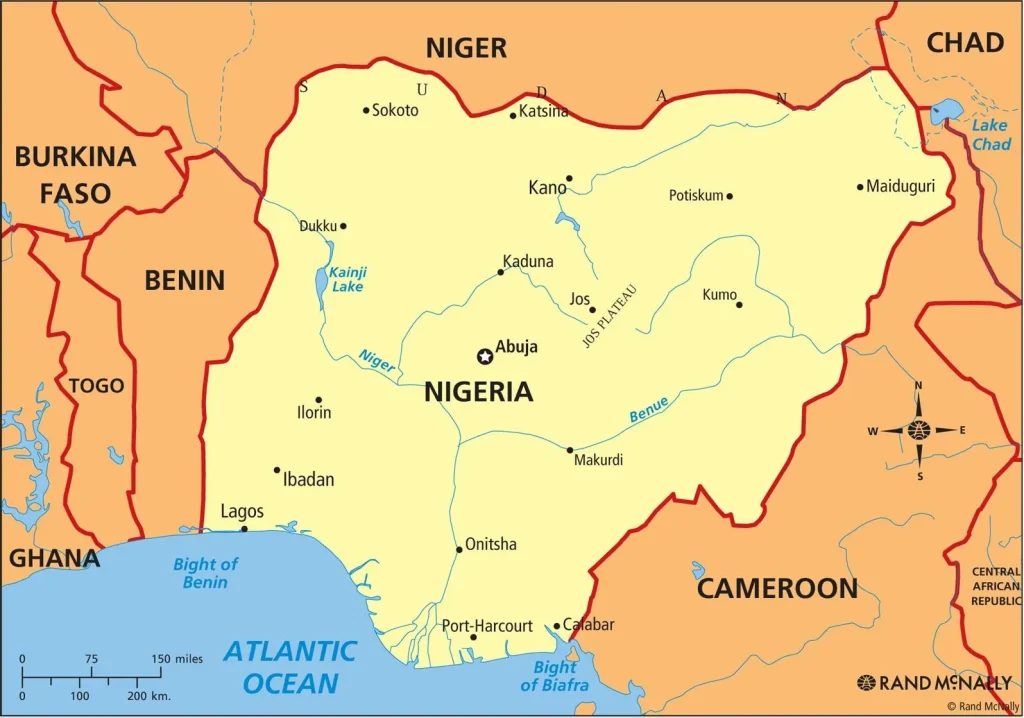Nigeria, is often known as the “Giant of Africa,” is the most populous country on the continent and the seventh most populous in the world, with a population exceeding 220 million. Located in West Africa, Nigeria is richly endowed with human and natural resources, including vast arable land, abundant oil and gas reserves, solid minerals, and diverse cultural heritage. Its strategic position, large domestic market, and youthful population make it a significant player in Africa’s economic, political, and cultural landscape.
Nigeria operates as a mixed economy, combining traditional agriculture with modern industry and services. It has the largest economy in Africa and ranks as one of the continent’s leading oil producers, contributing significantly to global energy supplies. However, Nigeria‘s economic performance is often influenced by global commodity prices, internal structural issues, and socio-political dynamics.
Nigeria’s Economy: Growth, Challenges, and Key Sectors
Over the past few decades, Nigeria has experienced periods of rapid economic growth, driven largely by the oil boom, a growing services sector, and a resilient entrepreneurial population. Following the rebasing of its GDP in 2014, Nigeria emerged as Africa’s largest economy, surpassing South Africa.

Nigeria’s Key Economic Indicators (2023-2024)
| Indicator | 2023 Estimate | 2024 Projection |
|---|---|---|
| Real GDP Growth (%) | 2.9% | 3.3% |
| Inflation Rate (%) | 24% | 21% |
| Crude Oil Export Growth (%) | 4% | 6% |
| Agricultural Export Growth (%) | 6% | 8% |
| Overall Real Export Growth (%) | 5% | 7% |
Key Sectors Driving Nigeria’s Economy
Nigeria’s economy is diversified across several critical sectors, each contributing uniquely to growth, employment, and development:
1. Oil and Gas
Nigeria is Africa’s top oil producer and holds significant natural gas reserves. The sector attracts major foreign investments but remains prone to environmental concerns, oil theft, and global market volatility.
2. Agriculture
Agriculture, dominated by smallholder farmers, produces crops like cassava, yams, maize, rice, cocoa, and palm oil. There is increasing focus on mechanization, agro-processing, and export-led growth to revitalize the sector.
3. Manufacturing and Industry
Nigeria’s manufacturing base is growing, with industries ranging from cement, textiles, food processing, pharmaceuticals, to petrochemicals. However, high production costs and weak infrastructure remain barriers.
4. Services and ICT
The service sector, particularly financial services, telecommunications, and entertainment, is one of the fastest-growing areas. Nigeria’s fintech industry is vibrant, and the creative sector (music, film, fashion) is gaining global recognition.
5. Mining and Solid Minerals
With vast untapped reserves of minerals like gold, limestone, tin, and coal, the mining sector is seen as a potential driver for diversification and job creation.
6. Real Estate and Construction
Driven by urbanization and population growth, the real estate and construction sectors contribute significantly to GDP, although they face challenges like access to financing and land acquisition issues.
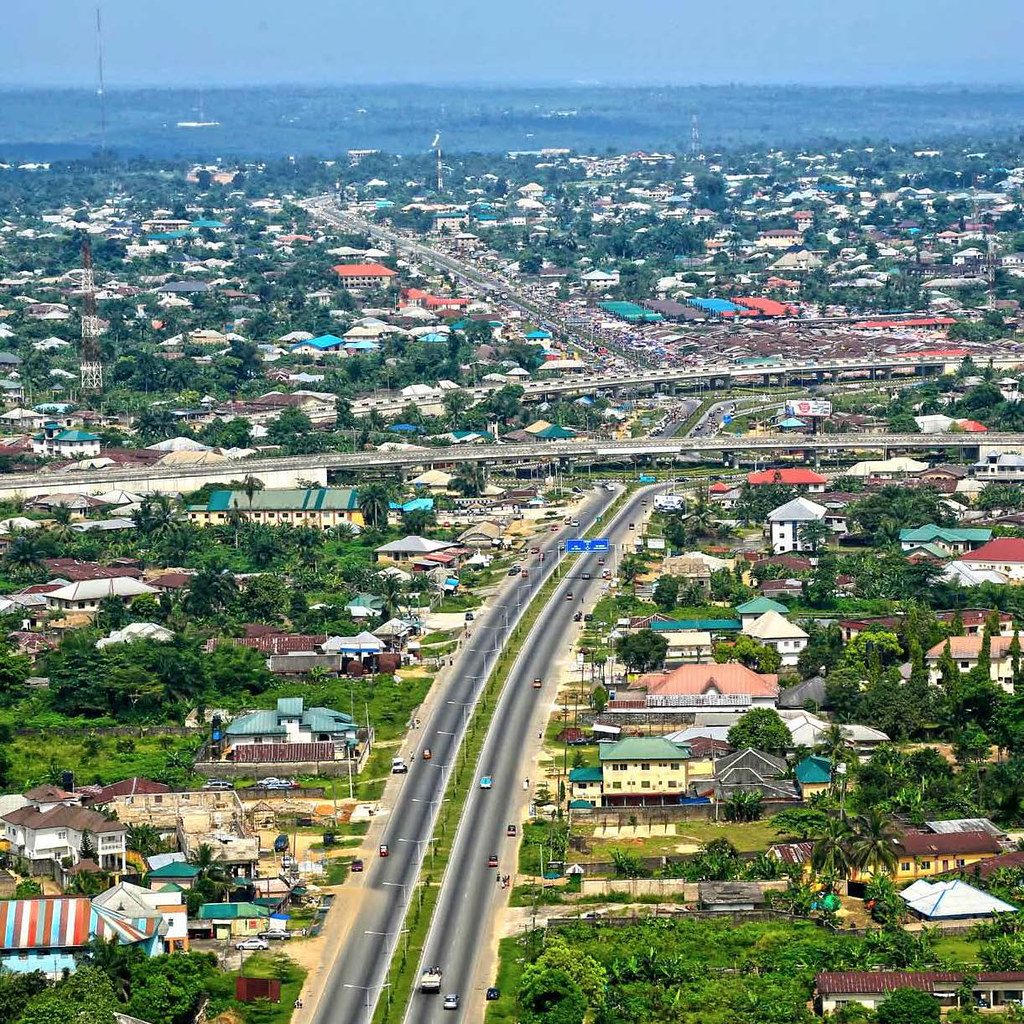
Challenges Facing Nigeria’s Economy
While Nigeria boasts immense potential, it grapples with persistent challenges that impede sustainable economic development and equitable growth:
- Overdependence on Oil: Fluctuations in global oil prices expose the economy to vulnerabilities, affecting fiscal stability and foreign exchange earnings.
- Infrastructural Deficit: Poor infrastructure—roads, power, ports, and railways—continues to constrain industrialization, logistics, and business operations.
- High Unemployment and Underemployment: With a growing youth population, Nigeria faces rising unemployment rates, leading to increased poverty and social unrest.
- Corruption and Governance Issues: Systemic corruption, policy inconsistencies, and weak institutions hinder economic reforms and foreign investment.
- Security Concerns: Insurgencies, banditry, and kidnappings in various regions undermine economic activities, especially in agriculture and mining.
- Exchange Rate Instability and Inflation: Persistent inflation, currency devaluation, and multiple exchange rates negatively affect business confidence and purchasing power.
Future Outlook: What’s Next for Nigeria’s Economy?
Nigeria’s economic outlook is cautiously optimistic, with growth projected between 3.3% and 3.5% in the coming years, driven by diversification efforts, a growing digital economy, and a large youthful population. Key sectors like agriculture, ICT, and manufacturing are expected to contribute more to GDP, while Nigeria’s natural gas reserves position it for gains in the global energy transition. However, challenges such as high inflation, exchange rate instability, insecurity, and infrastructure deficits could hinder progress if not addressed. With consistent reforms, improved governance, and investments in human capital and infrastructure, Nigeria has the potential to strengthen its economy and solidify its position as Africa’s leading economic powerhouse.
Business Opportunities in Nigeria: Why Investors Are Paying Attention
Nigeria’s large, youthful population and expanding middle class make it one of Africa’s largest consumer markets, offering vast opportunities in retail, e-commerce, real estate, and financial services. The government’s economic diversification efforts have opened new investment frontiers in agriculture, technology, manufacturing, and services. Nigeria’s thriving tech ecosystem, particularly in Lagos—Africa’s “Silicon Savannah”—continues to attract global venture capital, especially in fintech, e-commerce, edtech, and healthtech. Rich in natural resources like oil, gas, minerals, and fertile land, Nigeria also excels in agricultural exports. Additionally, government policies, tax incentives, and free trade zones aim to improve the ease of doing business and attract investors.
Top Sectors for Investment in Nigeria
Agriculture and Agribusiness
- Nigeria has vast arable land and a favorable climate for diverse crop cultivation.
- Opportunities exist in mechanized farming, food processing, packaging, storage, and export of products like cassava, rice, cocoa, and poultry.
Technology and Fintech
- Nigeria is home to some of Africa’s biggest tech startups like Flutterwave, Paystack, and Andela.
- High mobile penetration and growing internet use are fueling innovations in digital payments, lending, e-commerce, and blockchain technology.
Oil & Gas and Renewable Energy
- While oil remains a key industry, Nigeria is pushing for renewable energy development (solar, hydro, wind).
- Opportunities exist in gas utilization projects, off-grid energy solutions, and power infrastructure development.
Real Estate and Construction
- Rapid urbanization and population growth are driving demand for housing, commercial spaces, and infrastructure.
- The real estate sector offers opportunities in residential developments, shopping malls, and smart cities.
Healthcare and Pharmaceuticals
- Nigeria’s healthcare system is underdeveloped, creating demand for hospitals, diagnostic centers, pharmaceutical manufacturing, and telemedicine.
- The government encourages investment through Public-Private Partnerships (PPPs).
Education and EdTech
- With millions of school-aged children, Nigeria’s education sector needs investment in schools, vocational training, and digital learning platforms.
- EdTech is thriving, with innovations addressing gaps in access and quality.
Manufacturing and Industrialization
- Nigeria’s industrial sector is growing, particularly in cement, steel, textiles, food processing, and consumer goods.
- Government initiatives like the “Nigeria Industrial Revolution Plan” are encouraging local production.
Entertainment and Creative Industry
- Nollywood is the second-largest film industry by volume globally.
- The music, fashion, and arts sectors are rapidly expanding, offering opportunities for local and global partnerships.
Challenges and Risks of Investing in Nigeria
Despite Nigeria’s vast opportunities, investors face several challenges and risks. Infrastructure deficits, such as poor roads, unreliable power supply, and limited transport networks, increase operational costs. Regulatory complexities, inconsistent policies, and bureaucratic delays can hinder business growth, while security concerns like terrorism, banditry, and kidnappings pose significant threats. Corruption, especially in public procurement, remains a major issue. Currency fluctuations and forex scarcity impact profitability, particularly for import-dependent businesses. Additionally, political instability and policy uncertainty, often triggered by elections and regime changes, create an unpredictable investment climate. Limited access to finance and high-interest rates further constrain small and medium enterprises (SMEs).
Conclusion: Why Investors Should Act Now
Nigeria remains one of the most promising investment destinations in Africa due to its large market, abundant resources, and growing digital economy. The top sectors for investment—agriculture, technology, energy, real estate, healthcare, education, manufacturing, and entertainment—offer immense growth potential.
However, investors must navigate challenges such as infrastructure gaps, regulatory complexities, security issues, and currency risks. With proper due diligence, risk mitigation strategies, and strong local partnerships, Nigeria offers rewarding opportunities for forward-thinking investors willing to tap into the dynamic African market.
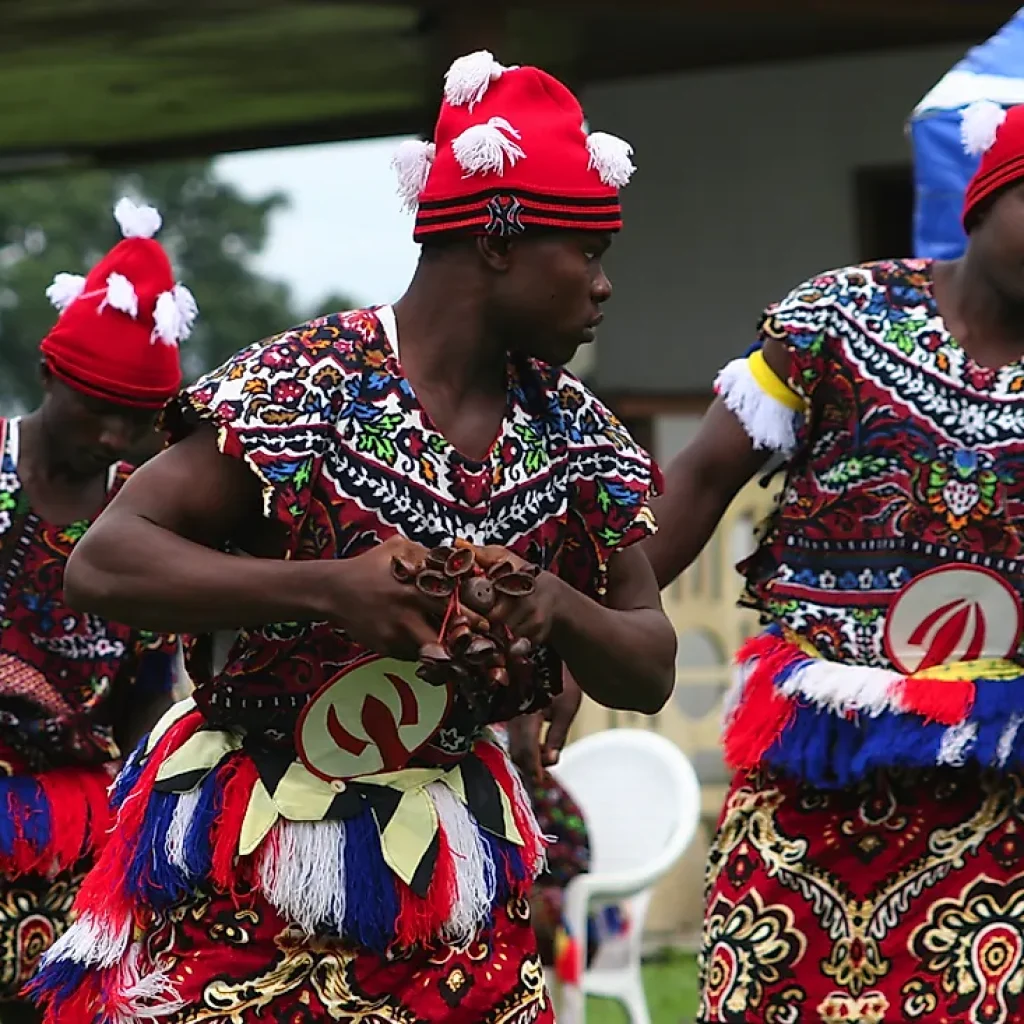
Everyday Life in Nigeria: Culture, Food, and Traditions
Nigeria is one of the most culturally diverse nations in the world, home to over 250 ethnic groups, each with distinct languages, customs, and traditions. The three largest ethnic groups — Hausa-Fulani in the north, Yoruba in the southwest, and Igbo in the southeast — are joined by numerous others including the Tiv, Ibibio, Kanuri, and Ijaw.
Family remains the foundation of Nigerian society, with strong communal ties extending beyond the nuclear family to include extended relatives. Respect for elders is a deeply rooted value, shaping social interactions and community life. Traditional marriage ceremonies are colorful and elaborate, showcasing music, dances, and cultural displays.
While English serves as Nigeria’s official language, indigenous languages such as Hausa, Yoruba, and Igbo are widely spoken across the country. Pidgin English, a blend of local dialects and English, is commonly used in daily conversations, markets, and informal settings, reflecting Nigeria’s rich cultural blend.
Nigerian Traditions and Festivals
Nigeria’s rich cultural heritage is celebrated through various festivals, traditional ceremonies, and art forms passed down through generations.
Music and Dance
- Nigeria is home to globally recognized music genres like Afrobeats, Highlife, Juju, Fuji, and Hip Hop.
- Traditional drumming, singing, and dancing are integral parts of ceremonies, religious rituals, and social gatherings.
- Music icons like Fela Kuti, Burna Boy, Wizkid, and Tiwa Savage have put Nigerian music on the global stage.
Art and Fashion
- Nigeria boasts a rich tradition of arts, from intricate beadwork and pottery to wood carvings and textiles.
- Nigerian fashion is vibrant, with traditional attires like Ankara, Aso Ebi, Agbada, Kaftans, and Gele (headwraps) worn during special occasions and daily life.
- The fashion industry is rapidly growing, blending traditional designs with modern trends.
The Role of Storytelling and Proverbs
- Oral storytelling is a key cultural practice, used to pass down history, morals, and traditions.
- Proverbs are commonly used in everyday conversation, reflecting wisdom and cultural values, e.g., “He who fetches firewood infested with ants invites lizards into his home.”
Religion and Belief Systems
- Nigeria is religiously diverse, primarily split between Islam (mainly in the north) and Christianity (mainly in the south), with pockets of indigenous beliefs.
- Religion plays a significant role in daily life, influencing dressing, festivals, laws, and social norms.
- Regular worship, prayers, and religious gatherings are integral to everyday life.
Festivals and Celebrations
- Durbar Festival (North): A grand parade of horses, traditional music, and dancing during Eid celebrations, showcasing the rich Hausa-Fulani culture.
- Osun-Osogbo Festival (Yoruba): An annual sacred festival held in Osogbo, dedicated to the river goddess Osun, attracting visitors from around the world.
- New Yam Festival (Igbo): Celebrated by the Igbo people to mark the harvest of new yams, involving feasting, dances, and rituals.
- Argungu Fishing Festival: A cultural and sporting event in Kebbi State where thousands compete in a fishing contest.
- Carnivals: Calabar Carnival, often referred to as “Africa’s Biggest Street Party,” blends traditional African, Brazilian, and Caribbean elements with colorful costumes, music, and dancing.
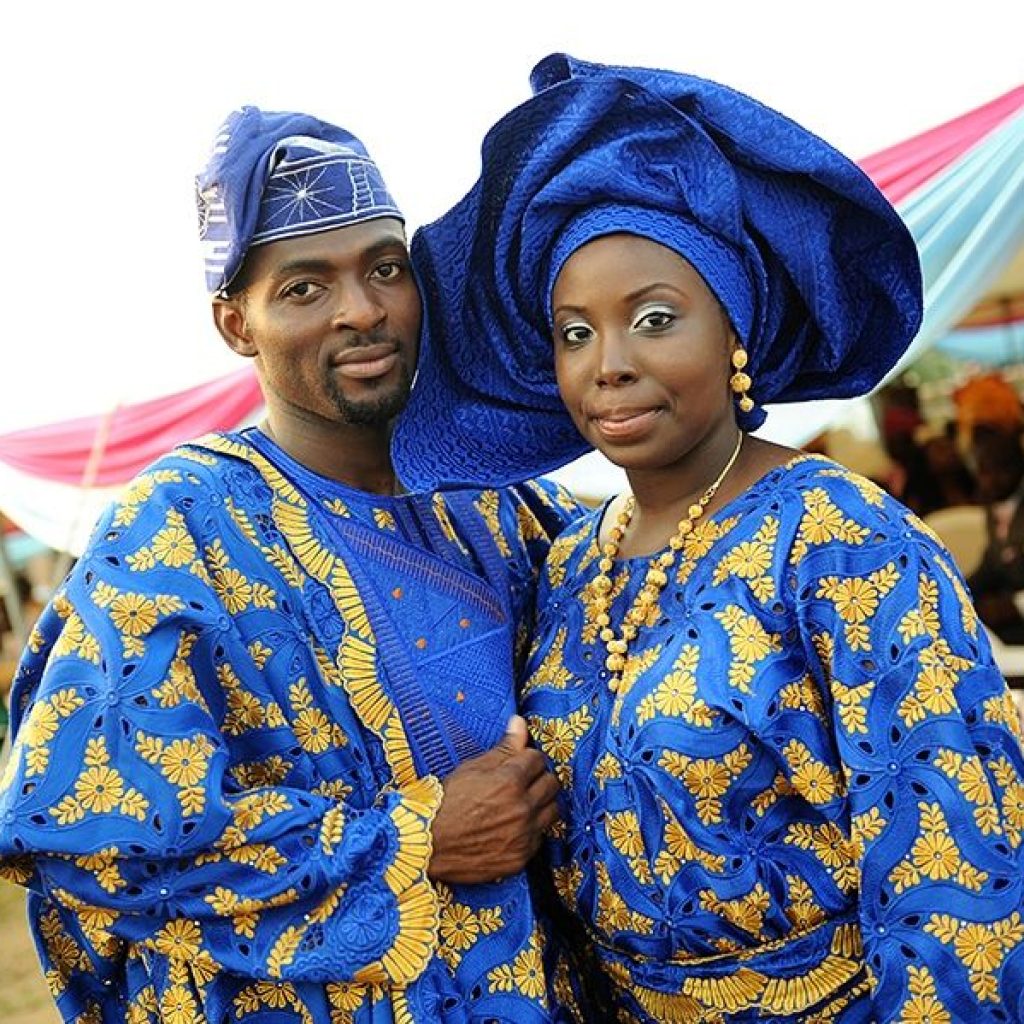
Nigerian Food: A Flavorful Experience
Food is a central part of Nigerian life and culture, reflecting the country’s diversity and rich agricultural heritage. Nigerian cuisine is known for its bold flavors, spices, and hearty meals.
Popular Nigerian Dishes
- Jollof Rice: A West African staple cooked with tomatoes, peppers, onions, and spices, often served with chicken, beef, or fish.
- Egusi Soup: Made with melon seeds, vegetables, and meat or fish, usually eaten with pounded yam or fufu.
- Suya: A spicy, grilled meat skewer, typically beef or chicken, seasoned with peanut spice mix, popular as street food.
- Pounded Yam and Fufu: Starchy sides made from yam or cassava, served with soups like Ogbono, Efo Riro, or Okra soup.
- Moi Moi: A steamed bean pudding made from ground peeled beans, onions, and peppers.
- Pepper Soup: A spicy, watery soup made with meat or fish, rich in local herbs and spices.
- Akara: Deep-fried bean cakes made from black-eyed peas, common for breakfast or snacks.
Eating Habits and Traditions
- Meals are often communal, with family members or friends sharing large bowls of food.
- Eating with the hands, particularly the right hand, is common when consuming traditional dishes.
- Food is deeply tied to celebrations, ceremonies, and hospitality, with specific dishes served during weddings, festivals, and religious holidays.

Urban vs. Rural Life in Nigeria: A Comparison
| Aspect | Urban Life (Lagos, Abuja, Port Harcourt) | Rural Life (Benue, Ebonyi, Kebbi, Taraba) |
| Work Schedule | 8 AM – 5 PM (formal jobs); shift work in some sectors | Sunrise to sunset (farming, local trade, and crafts) |
| Transportation | Buses, taxis, ride-hailing apps (Bolt, Uber), motorcycles (Okada), tricycles (Keke) | Walking, bicycles, motorcycles, local boats, and carts |
| Housing | Apartments, duplexes, estates, bungalows | Mud houses, thatched huts, small concrete homes |
| Social Life | Malls, cinemas, bars, restaurants, clubs, social media | Village gatherings, local festivals, storytelling, markets |
Final Thoughts: A Country with a Diverse Culture
Everyday life in Nigeria is a vibrant blend of tradition and modernity, where diverse cultures, rich culinary traditions, colorful festivals, music, and deep-rooted communal values shape social interactions. Despite economic and social challenges, Nigerians maintain a strong cultural identity, resilience, and joy for life, expressed through their food, music, fashion, and community spirit. This rich cultural fabric continues to attract global attention and influence, making Nigeria a unique and fascinating country to experience.
Cost of Living in Nigeria: Affordable or Expensive
| Category | Urban Areas (Lagos, Abuja) | Rural Areas / Smaller Cities |
|---|---|---|
| Housing (Rent) | – 1-Bedroom Apartment (City Center): ₦500,000–₦800,000/month ($350–$550) – 1-Bedroom (Outskirts): ₦250,000–₦400,000/month ($175–$275) | – 1-Bedroom: ₦30,000–₦100,000/month ($20–$70) – Family House: ₦100,000–₦200,000/year ($70–$140) |
| Food & Groceries | – Monthly groceries (single person): ₦80,000–₦150,000 ($55–$100) – Eating out (per meal): ₦2,500–₦5,000 ($2–$3.50) | – Monthly groceries: ₦30,000–₦70,000 ($20–$50) – Local meal: ₦500–₦1,500 ($0.35–$1) |
| Transportation | – Public transport (BRT, Keke): ₦500–₦1,500 daily ($0.35–$1) – Ride-hailing (Bolt/Uber): ₦2,500–₦5,000/trip ($2–$3.50) – Fuel price: ₦670/liter ($0.45) | – Motorcycle (Okada): ₦100–₦500/trip ($0.07–$0.35) – Walking and bicycles common |
| Utilities & Internet | – Electricity, water, gas: ₦30,000–₦70,000/month ($20–$50) – Unlimited internet: ₦20,000–₦35,000/month ($14–$25) | – Electricity, water: ₦5,000–₦15,000/month ($3.50–$10) – Internet: ₦8,000–₦15,000/month ($6–$10) |
| Healthcare | – Private hospital consultation: ₦15,000–₦50,000/visit ($10–$35) – Health Insurance (HMO): ₦30,000–₦100,000/year ($20–$70) | – Public health centers: ₦2,000–₦5,000/visit ($1.50–$3.50) – Traditional medicine common |
| Education | – Private school (monthly): ₦50,000–₦300,000 ($35–$210) – International schools: ₦1 million–₦3 million/term ($700–$2,100) – University fees (Public): ₦100,000–₦300,000/year ($70–$210) | – Public school (monthly): ₦1,500–₦5,000 ($1–$3.50) – Private village schools: ₦10,000–₦50,000/term ($7–$35) |
Notes:
✅ Housing is the biggest expense in urban cities like Lagos and Abuja due to high demand.
✅ Food costs remain relatively affordable, but imported groceries increase the budget in cities.
✅ Transportation is cheaper using public options, but traffic congestion adds time and fuel costs.
✅ Utilities are rising due to electricity tariffs and internet subscription costs.
✅ Healthcare varies by quality—public hospitals are cheap but crowded, private hospitals are costly but efficient.
✅ Education ranges from affordable public schools to very expensive private and international schools.

Safety in Nigeria: Crime Rates, Travel Tips, and Security Measures
Crime Rates and Common Risks
Nigeria is a vibrant country with diverse regions, but safety conditions vary widely by location. While major cities like Lagos, Abuja, and Port Harcourt offer modern amenities and active business hubs, they also face challenges related to crime and security.
Common Crimes:
- Petty Theft and Pickpocketing: Especially in crowded markets, bus stations, and city centers.
- Armed Robbery and Carjacking: Occasionally reported in both urban and rural areas, often occurring at night or in less busy neighborhoods.
- Cybercrime and Scams: Internet fraud (locally called “Yahoo Yahoo”) is common. Phishing scams and advance-fee fraud remain risks.
- Home Invasions: Though less common in secured estates, home robberies can happen, especially in under-guarded areas.
Regional Safety Variations:
- Safer Areas: Lagos (high vigilance needed), Abuja, Calabar, and some parts of the southwest.
- High-Risk Areas: Borno, Yobe, Adamawa (terrorism), Zamfara, Kaduna, Katsina (banditry, kidnapping), and the Niger Delta (militant activities, piracy).
- Religious/ethnic clashes: Periodic tensions in central and northern Nigeria (e.g., Plateau, Kaduna).
Travel Safety Tips for Visitors in Nigeria
- 💳 Avoid carrying large amounts of cash – Use mobile payments or bank cards where accepted. ATMs are widely available in cities but use them cautiously.
- 🎒 Keep valuables secure – Use a crossbody or anti-theft bag. Avoid displaying expensive jewelry, gadgets, or large cash bundles in public.
- 🚖 Use trusted transportation – Stick to ride-hailing apps in urban areas. Avoid unregistered taxis or random motorbikes (Okada), especially after dark.
- 🌍 Respect local customs and dress codes – In conservative regions, particularly in the North, dress modestly. Cover arms and legs when visiting religious or traditional sites.
- 📍 Stay alert in crowded places – Markets, bus parks, and festivals can be hotspots for pickpockets and petty theft. Watch your belongings closely.
Emergency Numbers in Nigeria (2025):
- 📞 Police Rapid Response: 112 or 199
- 🚑 Ambulance / Medical Emergency: 112 or call nearby private hospitals directly
- 🔥 Fire Service: 112 or 193
- 📱 Lagos State Emergency (LASEMA): 767
Security Measures and Government Efforts
Government and Private Security:
- Nigerian Police Force (NPF): Provides basic law enforcement, though response times may vary.
- Private Security Companies: Common for residential estates, offices, and personal bodyguards.
- Military Presence: Deployed in high-risk regions and sometimes in cities for counter-terrorism operations.
- Neighborhood Watch Groups: Community-led vigilante groups assist in local security, particularly in rural areas.
Technology and Surveillance:
- Increase in **CCTV installations**, especially in cities and commercial centers.
- Use of mobile security apps to report incidents or call for help.
✅ Conclusion: Is Nigeria Safe?
Nigeria offers rich cultural experiences, business opportunities, and natural beauty, but it comes with safety risks that vary by location. Travelers and residents who remain cautious, stay informed, and follow security protocols generally navigate safely, especially in major cities. However, high-risk areas should be avoided or approached with extreme caution.
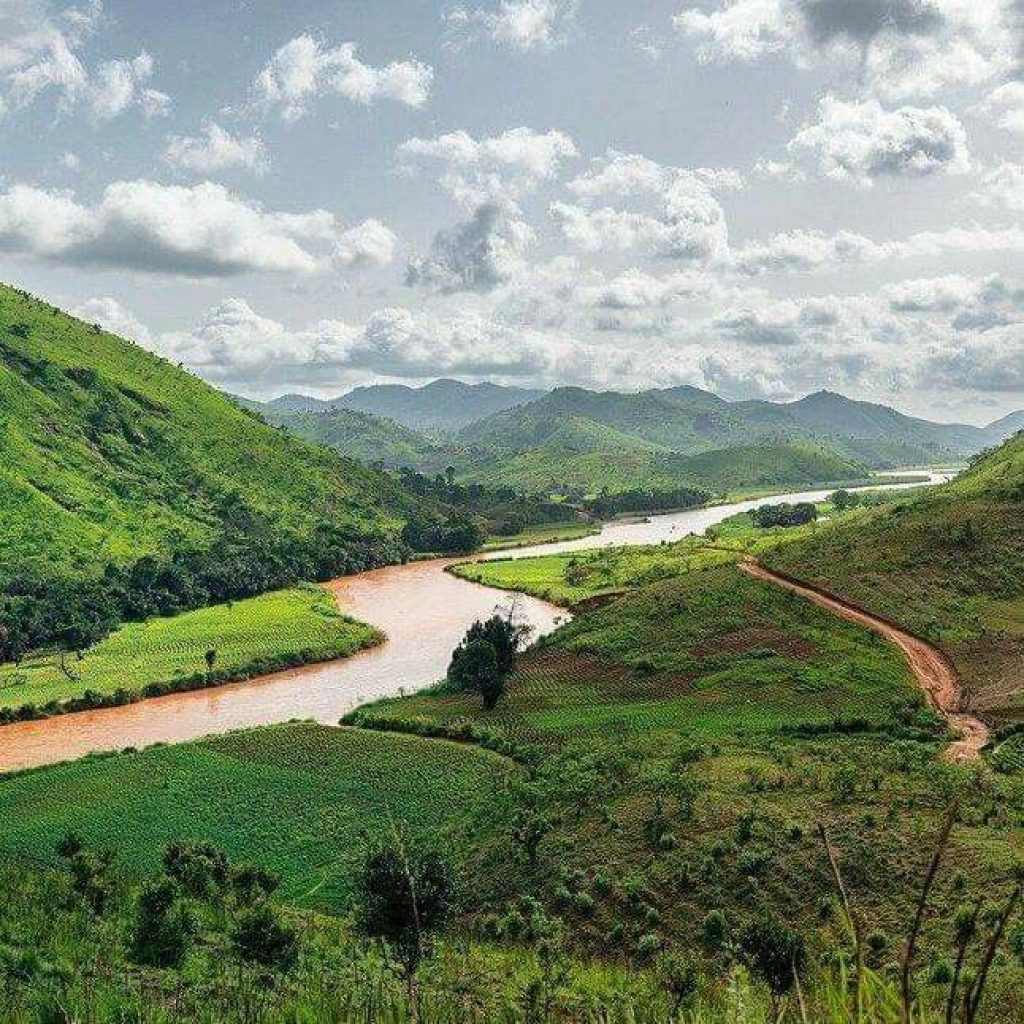
🌍 Tourism in Nigeria: Must-Visit Places and Hidden Gems
Nigeria is rich in culture, natural beauty, historical sites, and vibrant cities. While still an emerging tourist destination, the country offers diverse attractions ranging from bustling urban experiences to serene natural wonders.
🌟 Top Must-Visit Places in Nigeria
1. Lagos – The Commercial Capital
- Lekki Conservation Centre: Famous for its longest canopy walkway in Africa, offering breathtaking views of nature and wildlife.
- Nike Art Gallery: A cultural gem showcasing Nigerian art, fabrics, and crafts.
- Tarkwa Bay Beach: A calm, clean beach perfect for relaxation and water sports.
- National Museum, Lagos: Home to ancient artifacts, including the famous Nok Terracotta.
2. Abuja – Nigeria’s Capital
- Zuma Rock: Known as the “Gateway to Abuja,” this iconic rock formation is a spectacular sight.
- Aso Rock and Presidential Villa: A giant outcrop symbolizing Abuja’s landscape.
- Jabi Lake and Jabi Boat Club: Perfect for water sports, boat rides, and lakeside dining.
3. Calabar – Cultural Hub of the South
- Obudu Mountain Resort: Dubbed the “Heaven in the Clouds,” it offers a cable car ride, cold weather, and scenic views.
- Tinapa Resort: A business and leisure resort with a water park and shopping facilities.
- Calabar Carnival: Africa’s biggest street party held every December, filled with vibrant costumes, music, and dance.
4. Jos – Plateau’s Scenic Beauty
- Jos Wildlife Park: Home to lions, baboons, elephants, and exotic birds.
- Shere Hills: Popular for hiking, rock climbing, and panoramic views of Jos city.
- Museum of Traditional Nigerian Architecture: Preserves traditional building styles from across Nigeria.
5. Yankari National Park, Bauchi
Nigeria’s premier wildlife sanctuary, home to elephants, baboons, lions, and the natural **Wikki Warm Springs**, perfect for a relaxing dip.

💎 Hidden Gems in Nigeria
1. Erin Ijesha Waterfall (Olumirin Waterfall), Osun State
A seven-step waterfall hidden in a forest, offering hiking trails and refreshing views.
2. Idanre Hills, Ondo State
Ancient hills with historical settlements, 660 steps to climb, sacred places, and stunning landscapes.
3. Ogbunike Caves, Anambra State
Mysterious caves with spiritual significance, used as a hideout during colonial times.
4. Awhum Waterfall and Caves, Enugu State
Known for its spiritual aura, this waterfall cascades from a rocky hill and is believed by locals to have healing powers.
5. Kajuru Castle, Kaduna State
A medieval-style castle built in 1978, offering private tours and breathtaking views—ideal for adventurous travelers.
6. Ibeno Beach, Akwa Ibom
– Nigeria’s longest sand beach, stretching over 30 kilometers along the Atlantic Ocean—perfect for sunbathing and beach games.
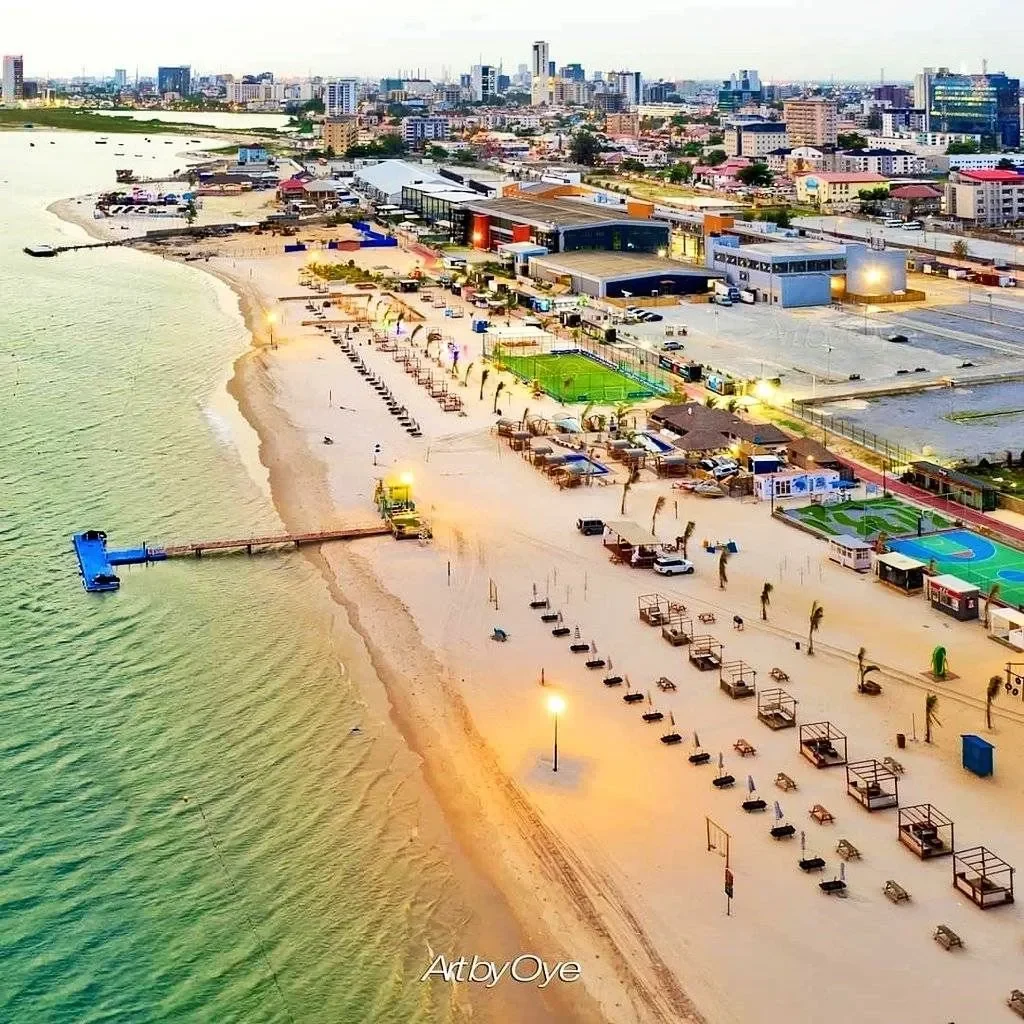
✨ Cultural and Heritage Sites
- Osun-Osogbo Sacred Grove (UNESCO World Heritage Site): A sacred forest and shrine dedicated to the river goddess Osun.
- Sukur Cultural Landscape (UNESCO World Heritage Site): A historic village with traditional terraced fields and stone architecture in Adamawa State.
- Benin Royal Palace, Edo State: Historic home of the Oba of Benin, rich in bronze artifacts and cultural heritage.
✅ Tips for Tourists:
- Best Travel Time: November to April (dry season) for festivals, sightseeing, and easier travel.
- Local Guides: Hiring local guides enhances your experience and helps navigate cultural sites.
- Safety: Stick to popular tourist areas, avoid night travel between cities, and monitor local news.
Nigeria’s tourism offers a unique blend of nature, history, culture, and adventure. From the bustling city life of Lagos to the serene hills of Jos and the hidden waterfalls of the southeast, the country is a treasure trove waiting to be explored. Whether you’re a nature lover, history buff, or cultural enthusiast, Nigeria has something special for you.
Other Nigeria News:
- Nigeria’s Naira-for-Crude Policy Could Threaten Forex Stability
- Militants Launch Deadly Attacks on Nigerian Army Base
- Iwobi and Aina Send Strong Message: “We Will Make the World Cup”
- Nigeria Drops Crucial Points at Home, South Africa Strengthens Its Lead!
- Twelve Inmates Escape from Nigerian Prison
- Nigeria and Kenya Among Countries Facing HIV Drug Shortages – WHO


